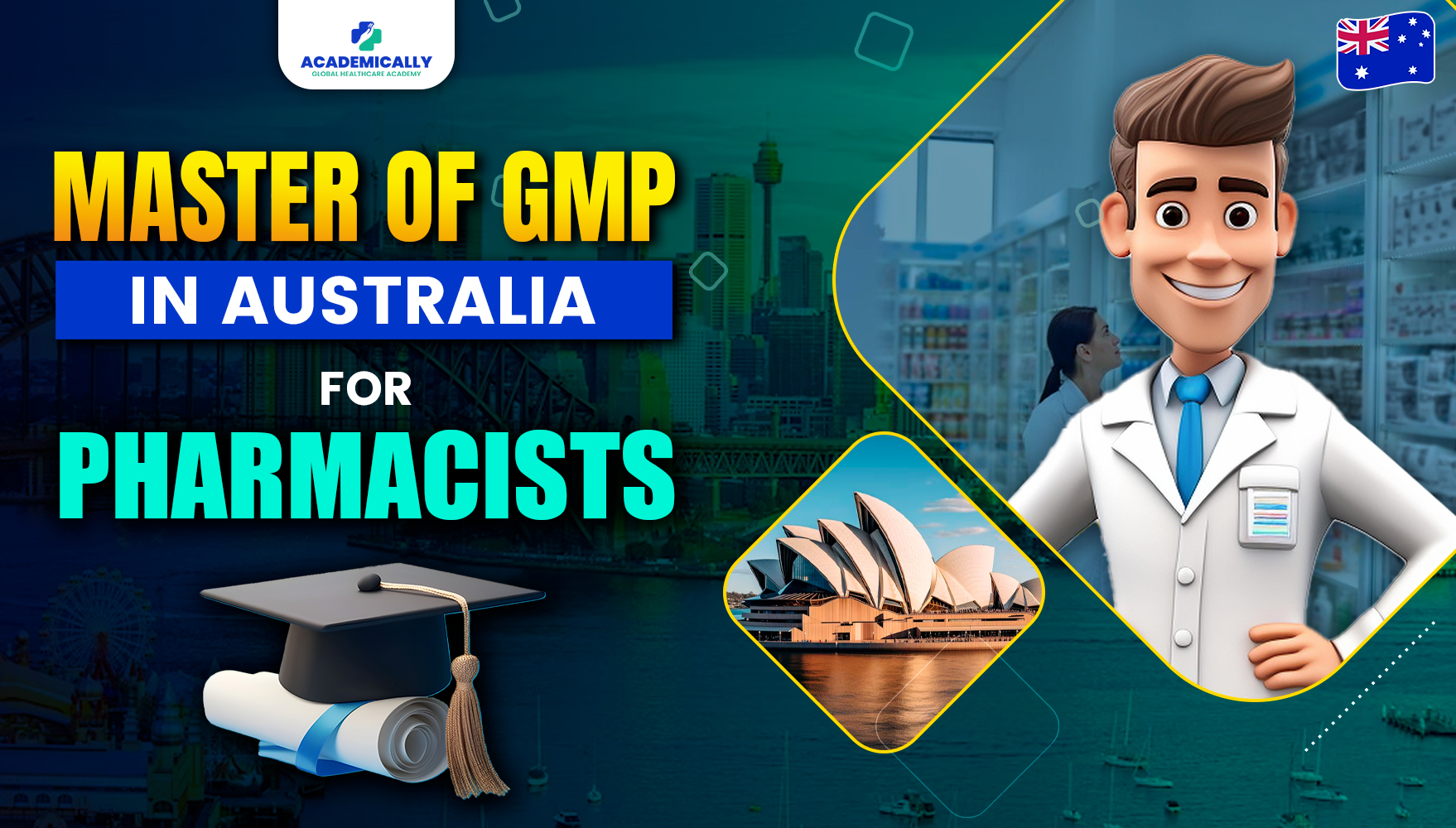The pharmaceutical industry is a dynamic and critical field that demands unwavering commitment to quality and safety. For pharmacists who wish to deepen their understanding and contribute to the heart of pharmaceutical manufacturing, a Master of Good Manufacturing Practices (GMP) after BPharm or PharmD in Australia presents a transformative opportunity. In this blog, we'll look at what this course involves, how important pharmacists are in making sure medicines are made right, and all the good things that come from getting this advanced degree.
Understanding the Master of GMP Course
The Master of GMP program in Australia is designed to provide an in-depth exploration of the principles, regulations, and practices governing pharmaceutical manufacturing. This postgraduate course is structured to equip pharmacists with specialized knowledge and skills required to ensure the consistent production and control of high-quality pharmaceuticals.
The curriculum often covers areas such as regulatory compliance, quality management systems, risk assessment, validation processes, and the latest advancements in biotechnology and manufacturing techniques. The goal is to empower pharmacists with a comprehensive understanding of the entire manufacturing process, from raw materials to the finished product.
The Role of Pharmacists in Good Manufacturing Practice
Pharmacists, with their profound understanding of pharmaceutical sciences and healthcare, play a crucial role in ensuring adherence to GMP standards. In a manufacturing setting, pharmacists bring a unique blend of clinical expertise and regulatory knowledge to oversee the production of safe and effective pharmaceuticals.
Their responsibilities may include:
- Implementing and managing quality management systems.
- Conducting risk assessments to identify potential hazards in the manufacturing process.
- Ensuring compliance with local and international regulatory requirements.
- Overseeing validation and qualification processes for equipment and facilities.
- Contributing to the development and maintenance of Good Documentation Practices.
Pharmacists in GMP not only safeguard the integrity of the pharmaceutical manufacturing process but also contribute to the overall safety and well-being of patients who rely on these products. To understand more about the scope of GMP, watch this video.
Benefits for Pharmacists Pursuing a Master of GMP
Specialised Expertise: The program provides pharmacists with a specialised skill set, positioning them as experts in pharmaceutical manufacturing and quality control.
Career Advancement: Graduates of the Master of GMP program are well-equipped for leadership roles in pharmaceutical companies, regulatory bodies, and quality assurance positions.
Global Opportunities: The knowledge gained in the program is applicable not only in Australia but also in international markets, opening doors to global career opportunities.
Contribution to Patient Safety: Pharmacists with expertise in GMP contribute directly to the safety and efficacy of pharmaceutical products, impacting patient outcomes positively.
Adaptability to Industry Trends: The program ensures pharmacists are up-to-date with the latest advancements in biotechnology and manufacturing, making them valuable assets in an ever-evolving industry.
Career Opportunities for Pharmacists After Master of GMP
- Production Manager
- Production Supervisor
- Quality Assurance Manager
- Quality Assurance Associate
- Industrial Pharmacist
- Quality Control Manager
- Documentation Manager
- Validation Manager
- Supply Chain Manager
- Regulatory Affairs Manager
- Regulatory Affairs Associate
- Auditor in Government Regulatory Agencies
- Consultant in consulting firms
Conclusion
A Master of GMP after a BPharm or PharmD in Australia offers a transformative educational journey for those seeking to excel in the pharmaceutical industry. From mastering regulatory compliance to honing practical skills, the program provides a holistic approach to pharmaceutical manufacturing. Graduates emerge not only as experts in GMP but as professionals ready to contribute to the advancement of pharmaceutical quality and safety on a global scale. It's a pathway that not only enhances one's career prospects but also contributes to the ongoing pursuit of excellence in healthcare.
If you are interested in just practising pharmacy in Australia as an international pharmacy graduate, clearing the KAPS exam can help you become a registered pharmacist in Australia.



